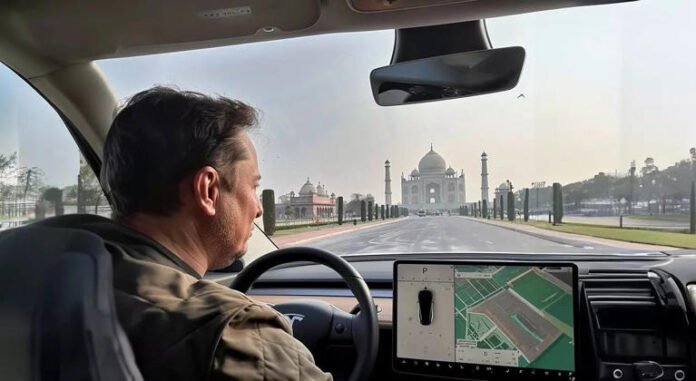The automotive landscape in India is on the cusp of a significant transformation as Tesla, the renowned electric vehicle (EV) manufacturer, prepares to establish its presence in the country. This development coincides with the United States’ recent advocacy for the elimination of import tariffs on automobiles entering the Indian market, a move that has sparked extensive discussions among policymakers, industry stakeholders, and consumers alike.
Tesla’s Strategic Move into India
Tesla has finalized a lease agreement for a showroom spanning 4,003 square feet in Mumbai’s Bandra Kurla Complex, marking a pivotal step in its entry into the Indian market. The five-year lease, commencing on February 16, 2025, underscores Tesla’s commitment to tapping into one of the world’s largest automotive markets.
The U.S. Advocacy for Zero Import Tariffs
In tandem with Tesla’s entry plans, the United States government has been actively advocating for the reduction or complete elimination of import tariffs on automobiles in India. Currently, India’s import duties on cars can reach up to 110%, a rate that has been a point of contention for international automakers seeking market entry. The U.S. aims to facilitate a more open and competitive market environment, which would not only benefit companies like Tesla but also potentially enhance consumer choice and technological advancement in India’s automotive sector.
India’s Position and Domestic Industry Concerns
Despite the U.S. push for zero tariffs, India has exhibited caution in making immediate changes to its import duty structure. The Indian government is considering a phased approach to tariff reduction, taking into account the potential impact on domestic automotive manufacturers. Companies such as Tata Motors and Mahindra & Mahindra have expressed apprehension that lowering import duties could undermine local manufacturing investments and competitiveness.
Ongoing Trade Negotiations
To address these complex issues, India’s Commerce and Industry Minister, Piyush Goyal, embarked on a visit to the United States for trade discussions. The agenda includes clarifying the implications of proposed U.S. tariffs and exploring avenues for mutual concessions to bolster bilateral trade. Both nations have set an ambitious goal of achieving $500 billion in trade by 2030, with the automotive sector being a critical component of these negotiations.
Potential Benefits and Challenges
The prospect of reduced import tariffs presents a mixed bag of opportunities and challenges. For consumers, it could mean access to a wider array of vehicle options, including advanced EVs like those offered by Tesla. However, domestic manufacturers are concerned about heightened competition and the need to accelerate innovation to maintain market share. The government’s challenge lies in balancing these interests to ensure that policy decisions foster both consumer benefits and the growth of local industries.
Tesla’s impending entry into the Indian market, coupled with the U.S. advocacy for zero car import tariffs, has catalyzed a critical discourse on trade policies, domestic industry protection, and consumer interests. As negotiations progress, the outcomes will likely have far-reaching implications for the future trajectory of India’s automotive sector and its integration into the global EV ecosystem.

